I don’t have much to report about my writing. I did sell a couple copies of Finding Frances in June, and one in July. It’s pitiful that this is exciting, but there you go.
The final semester of my MFA has officially started. The main work is preparing my thesis, but I have that almost done. My mentor has the full creative thesis now and will be giving me feedback on it, and I have a few little tweaks to make to the critical part of it, and then I’ll submit that to her later this month. I’m also taking two classes in addition to the thesis. One is on suspense and thriller novels with Lou Berney (author of The Long and Faraway Gone, one of my favorite such novels). He’s got me reading a handful of novels for the first packet and then writing a short paper about what suspense is, and then for the second packet he’ll read a synopsis of my rewritten Sadie Speaks, and then pages from the novel for the two later packets. The other class I’m taking is on research for writing, with Jeanetta Calhoun Mish, who’s Oklahoma’s Poet Laureate. I’m researching Irish history now, because I’m thinking of writing stories set in Ireland in various points in history, since I spent so much time and effort delving into it in college. I don’t know if I’ll ever really write it, but if I want to, I’ll have all my research ready.
Other than working on that, I’ve been drawing more. Here’s an oil lamp I did in stippling (which I will probably never do again—tedious) and a mannequin I did using hatching.
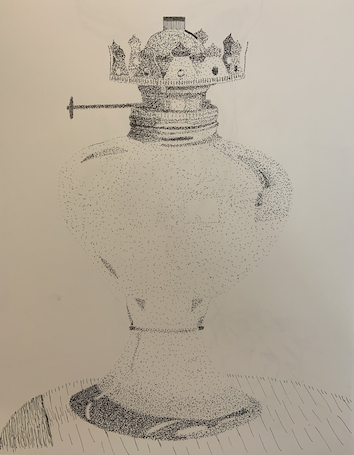
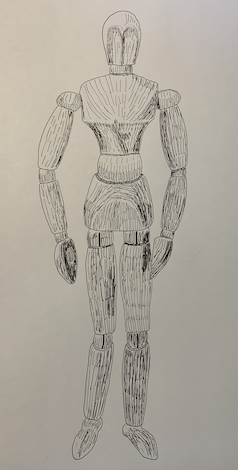
I’ve also started studying math again, because I’m planning to start the stats degree back up next fall, because I need that much time to study. It’s amazing how much you can forget when you don’t use it… I'm using Khan Academy as a starting point, which is pretty amazing. I'm guessing it's getting a lot of usage during the pandemic.
The only other thing going on is that I’m getting some work done in my bonus room, the room over the garage. It has a slanted ceiling but is otherwise a decent-sized room, and I’m getting bookshelves installed on the long, tall wall, along with a closet built at the end of the wall. The idea is to make it count as a bedroom. I’m not sure it will work, but I am sure I will have a lot more bookshelf space to store my many boxes of books. They’re starting the work tomorrow, and I’ll post pictures once it’s done. For your amusement, I’ll post a terrible but related poem I had to write for my residency (the assignment was to write a ghazal, which is an old Arabic poetry form—I didn’t do it quite right, but I got most of the elements right (writing about a desire with lots of repeating words and naming yourself near the end)).
They overflow from shelves and boxes. Books for me.
On tables and cabinets. History, math, linguistics for me.
Fiction, lots of fiction, of all different types.
Boxes of books, as far as the eye can see, for me.
They’ve come shipped from all over the world.
From Glasgow, Edinburgh, Pilsen, Milton Keynes, for me.
Even some from the Isle of Skye, in Gaelic.
The cats nestle amongst them, I read for me.
But they’re everywhere, too everywhere.
A place for them is what I need, for me.
A call to my contractor
And he’ll do some measuring for me.
A little bit of work in SketchUp
And they’ll be a virtual drawing for me.
A couple of weeks of sawing and hammering
So they can fit on the shelves neatly, for me.
Then you can call me keeper of books.
Shelves of books, as far as the eye can see, for me.
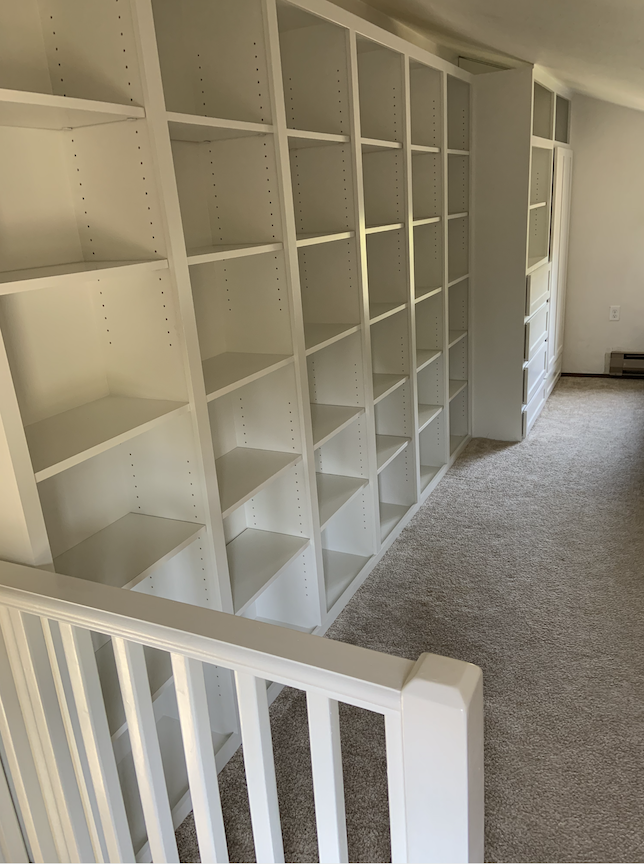
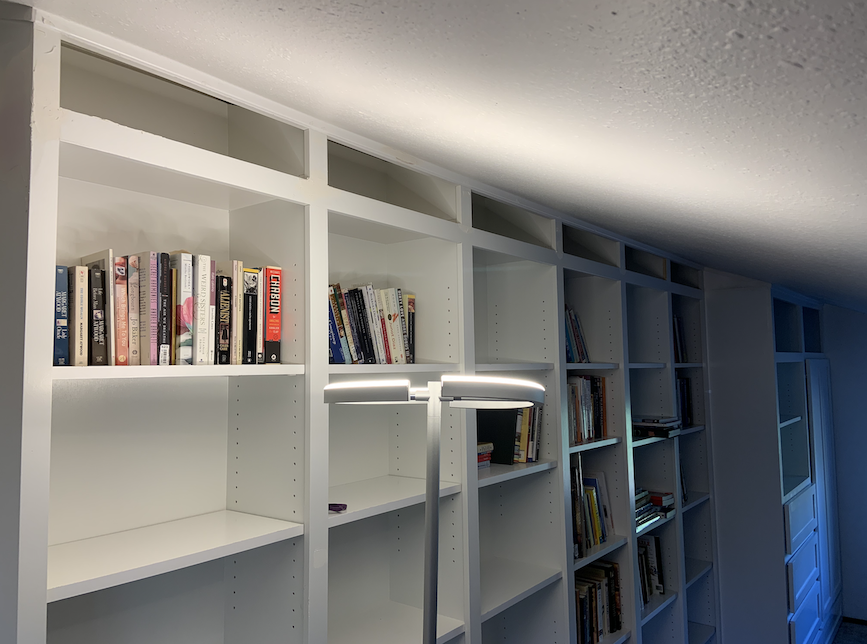
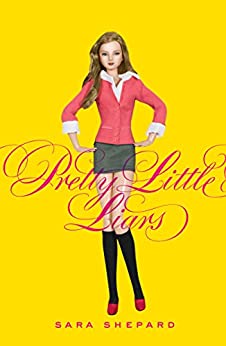 I know this book came out a while ago (2006) and is a TV show now, but I picked it up based on a recommendation for my suspense/thriller class for my MFA. I’d obviously heard of it, but never read it.
I know this book came out a while ago (2006) and is a TV show now, but I picked it up based on a recommendation for my suspense/thriller class for my MFA. I’d obviously heard of it, but never read it.

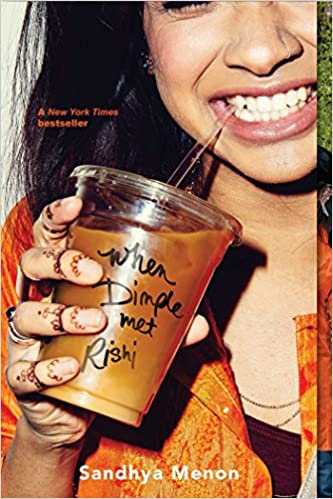 This is a light romance with two second-generation Indian-Americans dealing with being part of two cultures.
This is a light romance with two second-generation Indian-Americans dealing with being part of two cultures.
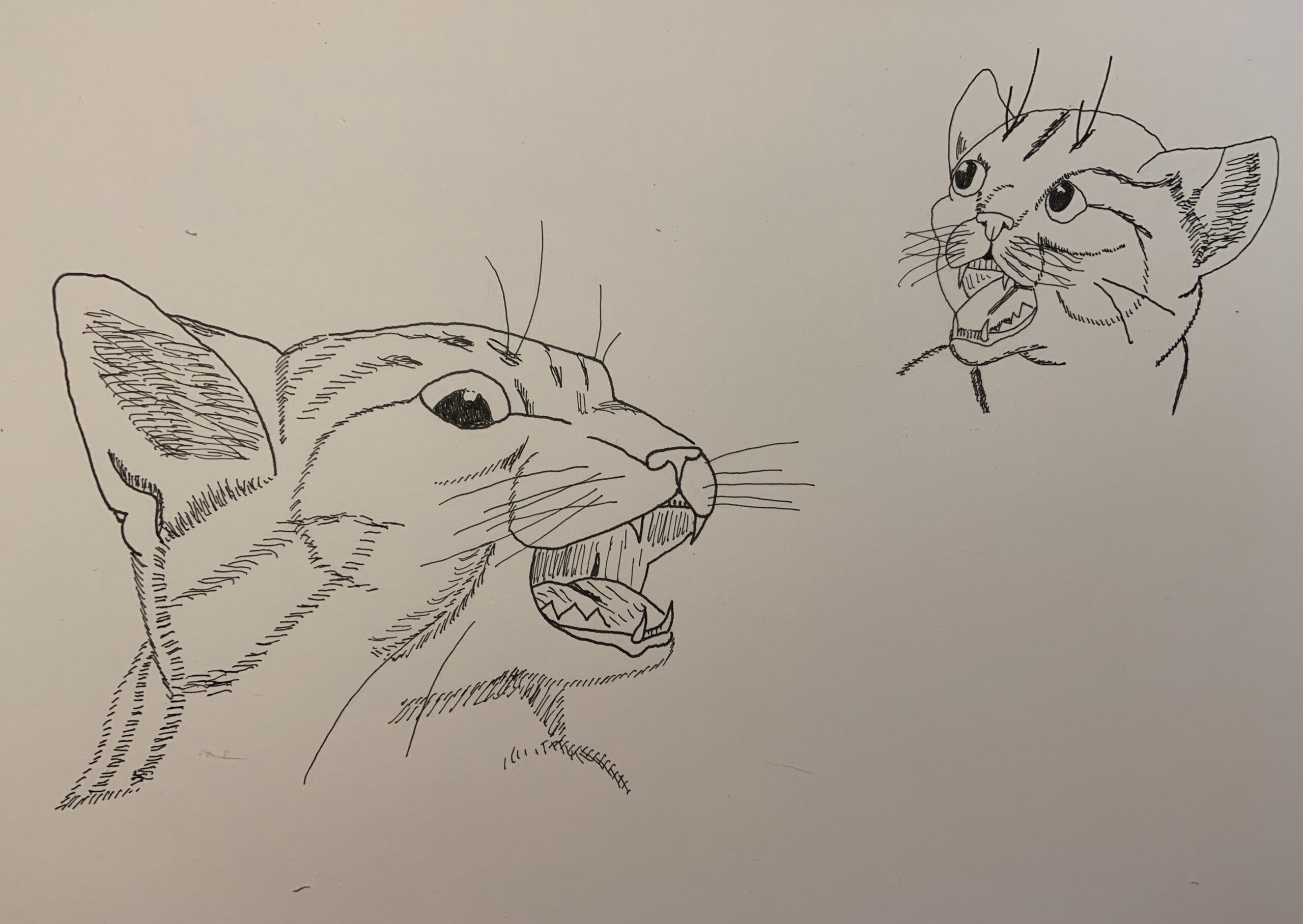
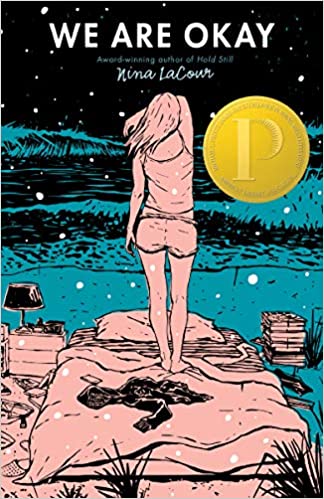 This is another very quiet book from LaCour that punches you right in the heart, much like Hold Still. I’ve read some of her other books and enjoyed them (I’ve given each of them 5 stars on Goodreads, which I rarely do), so I expected to like this one. I did— it got another 5-star rating.
This is another very quiet book from LaCour that punches you right in the heart, much like Hold Still. I’ve read some of her other books and enjoyed them (I’ve given each of them 5 stars on Goodreads, which I rarely do), so I expected to like this one. I did— it got another 5-star rating.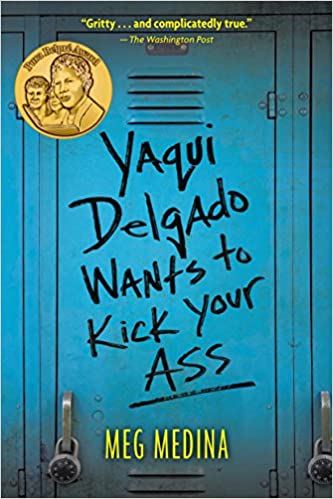 The title of this book pretty much tells you what it’s about: bullying. But it’s about more than that, too, and it didn’t feel like an issue book to me.
The title of this book pretty much tells you what it’s about: bullying. But it’s about more than that, too, and it didn’t feel like an issue book to me. If you know anything about this book, you know it’s important. Anderson has already written one important novel about sexual assault—Speak—but this is her far more personal memoir, written both to explain how she came to write Speak and simply tell her story. In SHOUT, she writes in verse, which made me wonder how I could possibly read it. Although I know this is weird, any time I see poetry, I get all anxious and can’t pay any attention to what I’m reading. So I had concerns. But then I found out there was an audiobook version—read by Anderson herself—so I checked that out and started listening. It didn’t sound like poetry; instead, it sounded just like someone telling a story, which made it completely accessible to me.
If you know anything about this book, you know it’s important. Anderson has already written one important novel about sexual assault—Speak—but this is her far more personal memoir, written both to explain how she came to write Speak and simply tell her story. In SHOUT, she writes in verse, which made me wonder how I could possibly read it. Although I know this is weird, any time I see poetry, I get all anxious and can’t pay any attention to what I’m reading. So I had concerns. But then I found out there was an audiobook version—read by Anderson herself—so I checked that out and started listening. It didn’t sound like poetry; instead, it sounded just like someone telling a story, which made it completely accessible to me.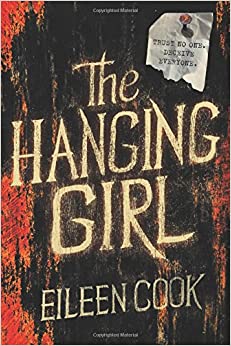 I’ve been reading a lot more YA suspense lately, partially because there’s more of it coming out, and partially because I’m interested in trying my hand at it at some point.
I’ve been reading a lot more YA suspense lately, partially because there’s more of it coming out, and partially because I’m interested in trying my hand at it at some point. Normally I’d post something about my writing, but there isn’t much to report so I thought I’d announce to the world my commitment to a couple of additional reading challenges for 2020 (I always do the Goodreads one—last year and this I committed to 110). One I started a while back (King County Library System’s 10 to Try), but the other (Book Riot's Read Harder Challenge) I just started.
Normally I’d post something about my writing, but there isn’t much to report so I thought I’d announce to the world my commitment to a couple of additional reading challenges for 2020 (I always do the Goodreads one—last year and this I committed to 110). One I started a while back (King County Library System’s 10 to Try), but the other (Book Riot's Read Harder Challenge) I just started.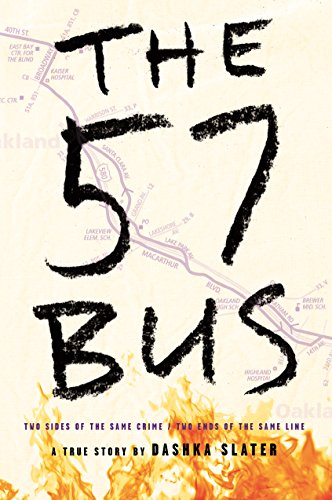
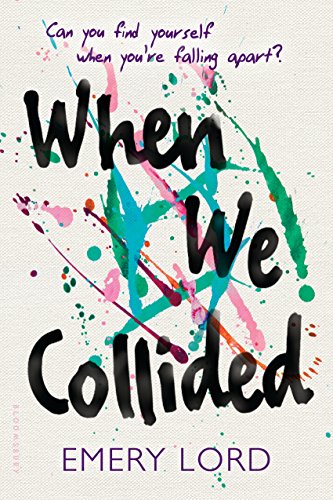 When We Collided was at the top of my stack of mental health-related books, so I picked it up this week. Fortunately, it isn’t an issue book—it’s a good story with two main characters in very different situations who “collide” and their lives are forever changed, as the title implies.
When We Collided was at the top of my stack of mental health-related books, so I picked it up this week. Fortunately, it isn’t an issue book—it’s a good story with two main characters in very different situations who “collide” and their lives are forever changed, as the title implies.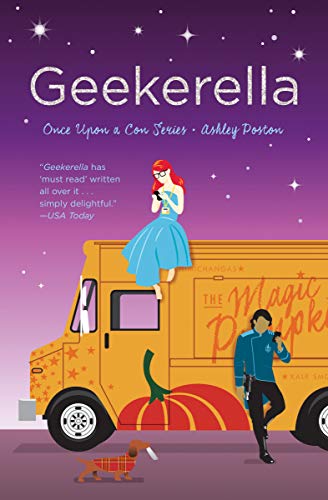 The idea of this book is really fun, if you’re into any kind of geeky fandom. And it’s all wrapped up as a retelling of Cinderella, which is cool.
The idea of this book is really fun, if you’re into any kind of geeky fandom. And it’s all wrapped up as a retelling of Cinderella, which is cool.